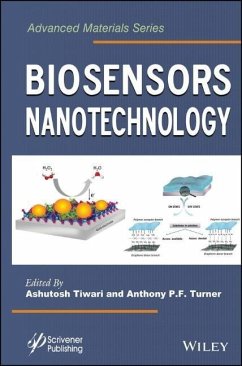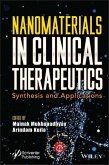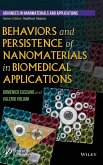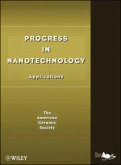This book provides detailed reviews of a range of nanostructures used in the construction of biosensors as well as the applications of these biosensor nanotechnologies in the biological, chemical, and environmental monitoring fields
Biological sensing is a fundamental tool for understanding living systems, but also finds practical application in medicine, drug discovery, process control, food safety, environmental monitoring, defense, and personal security. Moreover, a deeper understanding of the bio/electronic interface leads us towards new horizons in areas such as bionics, power generation, and computing. Advances in telecommunications, expert systems, and distributed diagnostics prompt us to question the current ways we deliver healthcare, while robust industrial sensors enable new paradigms in R&D and production.
Despite these advances, there is a glaring absence of suitably robust and convenient sensors for body chemistries. This book examines some of the emerging technologies that are fueling scientific discovery and underpinning new products to enhance the length and quality of our lives.
The 14 chapters written by leading experts cover such topics as:
ZnO and graphene microelectrode applications in biosensing
Assembly of polymers/metal nanoparticles
Gold nanoparticle-based electrochemical biosensors
Impedimetric DNA sensing employing nanomaterials
Graphene and carbon nanotube-based biosensors
Computational nanochemistry study of the BFPF green fluorescent protein chromophore
Biosynthesis of metal nanoparticles
Bioconjugated-nanoporous gold films in electrochemical biosensors
The combination of molecular imprinting and nanotechnology
Principles and properties of multiferroics and ceramics
Hinweis: Dieser Artikel kann nur an eine deutsche Lieferadresse ausgeliefert werden.
Biological sensing is a fundamental tool for understanding living systems, but also finds practical application in medicine, drug discovery, process control, food safety, environmental monitoring, defense, and personal security. Moreover, a deeper understanding of the bio/electronic interface leads us towards new horizons in areas such as bionics, power generation, and computing. Advances in telecommunications, expert systems, and distributed diagnostics prompt us to question the current ways we deliver healthcare, while robust industrial sensors enable new paradigms in R&D and production.
Despite these advances, there is a glaring absence of suitably robust and convenient sensors for body chemistries. This book examines some of the emerging technologies that are fueling scientific discovery and underpinning new products to enhance the length and quality of our lives.
The 14 chapters written by leading experts cover such topics as:
ZnO and graphene microelectrode applications in biosensing
Assembly of polymers/metal nanoparticles
Gold nanoparticle-based electrochemical biosensors
Impedimetric DNA sensing employing nanomaterials
Graphene and carbon nanotube-based biosensors
Computational nanochemistry study of the BFPF green fluorescent protein chromophore
Biosynthesis of metal nanoparticles
Bioconjugated-nanoporous gold films in electrochemical biosensors
The combination of molecular imprinting and nanotechnology
Principles and properties of multiferroics and ceramics
Hinweis: Dieser Artikel kann nur an eine deutsche Lieferadresse ausgeliefert werden.








